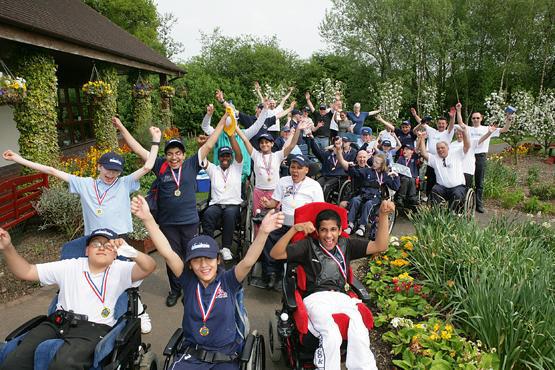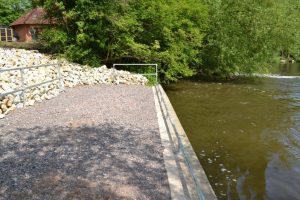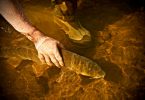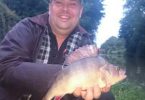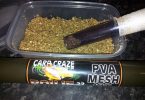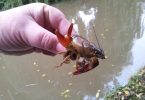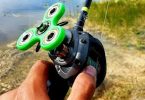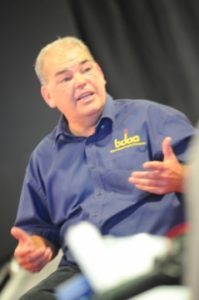 The British disabled angling association was formed 21 years ago as a registered charity by former Ex HM services & England International disabled team member Terry Moseley. The creation of the charity was simply through demand for information about disabled angling from individuals, Government departments, NHS, disability organisations, fisheries etc all requesting information on how disabled people can get into angling and what was available in terms of access and equipment to help after Terry had several appearances on television, disability feature articles in the late 1990`s. Frustrated he couldn’t answer their questions he set about to create an organisation which would ensure their questions could be answered in the future.
The British disabled angling association was formed 21 years ago as a registered charity by former Ex HM services & England International disabled team member Terry Moseley. The creation of the charity was simply through demand for information about disabled angling from individuals, Government departments, NHS, disability organisations, fisheries etc all requesting information on how disabled people can get into angling and what was available in terms of access and equipment to help after Terry had several appearances on television, disability feature articles in the late 1990`s. Frustrated he couldn’t answer their questions he set about to create an organisation which would ensure their questions could be answered in the future.
The charity is now seen as the first point of call in angling for anything connected with the subject of disability worldwide and managed by 11 trustees, although not an official governing body its never ending stream of calls and emails for help are answered by the people who understand the issues and needs of disabled people. The charity has trained disabled people to help fisheries improve their access and facilities, developed new equipment so even the most sever of impairments can fish, created angling coaches with specialist knowledge of different disabilities such as Stoke, Head injuries, Visually impaired, learning difficulties and many more so they can help those people adapt to angling in a different way than the orthodox in order to enjoy fishing.
So well informed was the charity that governments from USA, France, Spain, Canada, South Africa, Northern Ireland, Isle of Mann consulted with the BDAA on how they too could provide for disabled people in their countries as a result the Access to angling publications were born, now in their third edition these fishery design publications are used throughout the world to provide access on fisheries for disabled people.
By far the highest number of enquiries are “where can we fish”, most fisheries simply place a blue badge on a website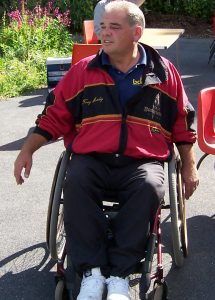 to denote they have access without actually realising what the sign represents to disabled people (Total accessibility) which is often over exaggerated and misunderstood as a sign resulting in disabled people being disappointed & frustrated with the sport. The Access guidance has been produced as a tool for fisheries to help them understand what’s expected as a minimum and help them to reach that expectation, the additional directory is an information portal for these fisheries who have provided for disabled people to promote and advertise their support to disabled people in one location free of charge so the disabled person can review the fishery and then make an informed choice of its suitability for their needs.
to denote they have access without actually realising what the sign represents to disabled people (Total accessibility) which is often over exaggerated and misunderstood as a sign resulting in disabled people being disappointed & frustrated with the sport. The Access guidance has been produced as a tool for fisheries to help them understand what’s expected as a minimum and help them to reach that expectation, the additional directory is an information portal for these fisheries who have provided for disabled people to promote and advertise their support to disabled people in one location free of charge so the disabled person can review the fishery and then make an informed choice of its suitability for their needs.
BDAA is self-funded by and relies on donations, the new website and directory cost in excess of £10k and three years in its unique feature development. Partly funded by the rod licence revenue now managed by the Angling Trust is totally reliant on the fisheries of England in this first phase to make it successful as a resource. Without fisheries listing disabled people cant find information on them, they may only have a car park but this may all that a certain disabled person needs, another may need additional items such as a toilet or level surfaces.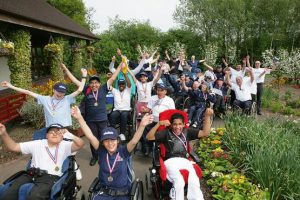
Like fisheries all disabled people are different, all having different needs in terms of access and facilities requirements. There are 13 million disabled people in the UK today, only 45,000 hold a disabled fishing licence and less than 2% of those are wheelchair users, even less are disabled children or under 25 yrs old. We believe we can increase these numbers in angling if fisheries inform disabled people about their fishery its facilities and offer a warm welcome for those who want to try fishing for the first time or after injury and illness.

